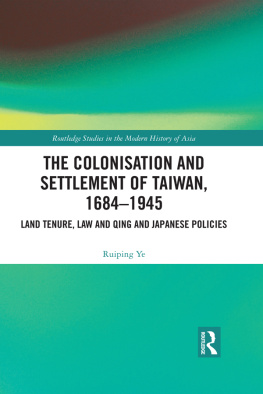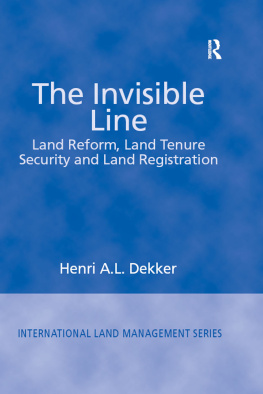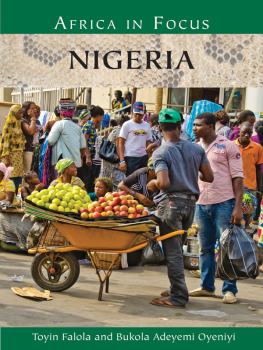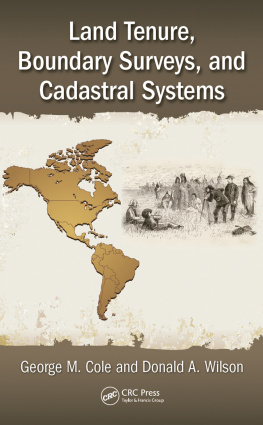LAND TENURE IN AN IBO VILLAGE IN SOUTH-EASTERN NIGERIA
LONDON SCHOOL OF ECONOMICS MONOGRAPHS ON SOCIAL ANTHROPOLOGY
Managing Editor: Charles Stafford
The Monographs on Social Anthropology were established in 1940 and aim to publish results of modern anthropological research of primary interest to specialists.
The continuation of the series was made possible by a grant in aid from the Wenner-Gren Foundation for Anthropological Research, and more recently by a further grant from the Governors of the London School of Economics and Political Science. Income from sales is returned to a revolving fund to assist further publications.
The Monographs are under the direction of an Editorial Board associated with the Department of Anthropology of the London School of Economics and Political Science.
First published 1941 by Berg Publishers
Published 2020 by Routledge
2 Park Square, Milton Park, Abingdon, Oxon OX14 4RN
605 Third Avenue, New York, NY 10017
Routledge is an imprint of the Taylor & Francis Group, an informa business
1941 Taylor & Francis
All rights reserved. No part of this book may be reprinted or reproduced or utilised in any form or by any electronic, mechanical, or other means, now known or hereafter invented, including photocopying and recording, or in any information storage or retrieval system, without permission in writing from the publishers.
Notice:
Product or corporate names may be trademarks or registered trademarks, and are used only for identification and explanation without intent to infringe.
ISBN 13: 978-1-8452-0016-9 (hbk)
To
S.R.E.
This material on land tenure forms part of the data collected during two tours in Nigeria, between 1934 and 1937, while I was the holder of a Leverhulme Research Fellowship for anthropological work among the Ibo people. I should like to take this opportunity of thanking the Leverhulme Trustees for the opportunity they gave me of learning something about this African people.
I should like also to thank Dr. C.K.Meek for explaining to me, in a short talk before I started, the main lines of Ibo kinship and local grouping. His book was not then published but I found his in formation and his Intelligence Reports of great value. His generous interest has always given me much encouragement.
I had not seen his work on Ibo land tenure before collecting my own evidence, but was confirmed in my findings by meeting his before writing up my material.
.
NAMES AND ORTHOGRAPHY.
For the spelling of Ibo words other than place names I have followed the orthography adopted by the Government Translation Bureau. For place names I have tried to follow the most common usage found in maps, in order to avoid confusion.
The word Ibo has established itself so widely in this form that I have used it rather than the more phonetically correct form, Igbo.
For tone markings I have used the system of Dr.I.C.Wards Introduction to the Ibo Language.
As the information in this paper was given me on the understanding that I was a private individual and not a government official I have omitted the real names of land owners and used symbols - A1 C1 etc. - instead. The genealogical tables at the end show the extended families end land owning groups to which the individuals belong. They also show their relationship within the extended families though I would not in all cases vouch for their accuracy.
. See p.6063.
LAND TENURE IN AN IBO VILLAGE
CONTENTS
I
INTRODUCTION
A description of land tenure and of the ownership of the produce of land is apt to read as a tedious catalogue of facts. There was however nothing of indifference or boredom in the atmosphere in which the facts were collected. Land is, to the Ibo, a sensitive point which the enquirer has only to touch to get a reaction of suspicion and alarm And palm trees are included with the land as subjects for anxiety. Moreover in Agbaja the pressure of population on land was considerable.
During the first six months that I spent in the village of Umueke Agbaja, in 1935, I hardly touched openly on the question of land tenure but observed and learned what I could Incidentally. When I returned in 1937 for a further six months and determined to try a more systematic study I had to proceed with care. Remembering the experience of surveyors in other areas I never openly measured land. Pacing it unobserved and trying to count the paces, with passers-by saying good morning" every few yards, is a less simple matter than it might appear. But it is better than nothing. Discretion was needed also about asking many direct questions unless one was sure of ones audience. My experience, in fact, confirmed what I have heard of that of forestry officers and surveyors as to the care needing in handling the question of land in the eastern provinces of Southern Nigeria.
This paper concerns the village of Umueke Agbaja. I have sometimes added points, and have specified that I was doing so, from other areas of Ibo country. And even a limited knowledge of such areas enables one to see that many of the features of land tenure in Umueke are found elsewhere. But no claim is made to deal with more than this village and that not exhaustively. Moreover, since it was in a rural area, the complicated problems that arise in townships like Onitsha are left aside. My reason for collecting together my notes on such a small area is that generalisation about things Ibo is impossible until facts have been collected from a sufficient number of separate localities. One also hopes that any set of local facts will form some sort of a basis of comparison for other areas and make their study simpler. I also found among government officials a feeling that no information about land, however small, was to be despised and that details were worth recording.
I therefore set down such information as I have got for what it is worth. To give substance to the description of how land is held it has been necessary to give some account of how it is used. Particularly in the case of woman, to omit any picture of their relationship to the land just because they do not own it would have been to present Hamlet without the Prince of Denmark. And this Involved some reference to the relative positions of men and women as owners of the produce of the land. But no attempt is made to give any account of agriculture, whether of its technical methods or of its magico - religious ritual. That would be a separate undertaking.
The information here has been collected in a variety of ways. Some is based on observation, some on the day to day comments of people using the land, some on conversations with a number of informants. Some, as will appear in the text, on the statement of a single informant or on the contradictory accounts of two or more people. That the information is always accurate I cannot hope, particularly when only one person is the source. Informants vary in reliability and no one who has dealt with them will consider even the best, nor their interlocutor, infallible. Among those I have quoted in the text, C1, whom I used a good deal because he was acceseible, was of moderate accuracy and intelligence only. D4 on the other hand was intelligent, objective and free from fear. Both were young men though C1 was the senior member of his land owning group. As the subject of land was a jumpy one I tended to talk to the younger men rather than the elders about it. I talked to women of all ages about their connection with the matter. I put forward the picture as it painted itself. I hope that it does not in essentials deviate from the situation it depicts.








